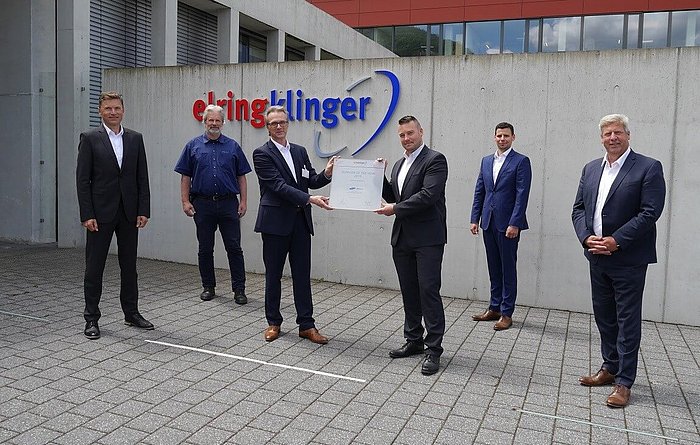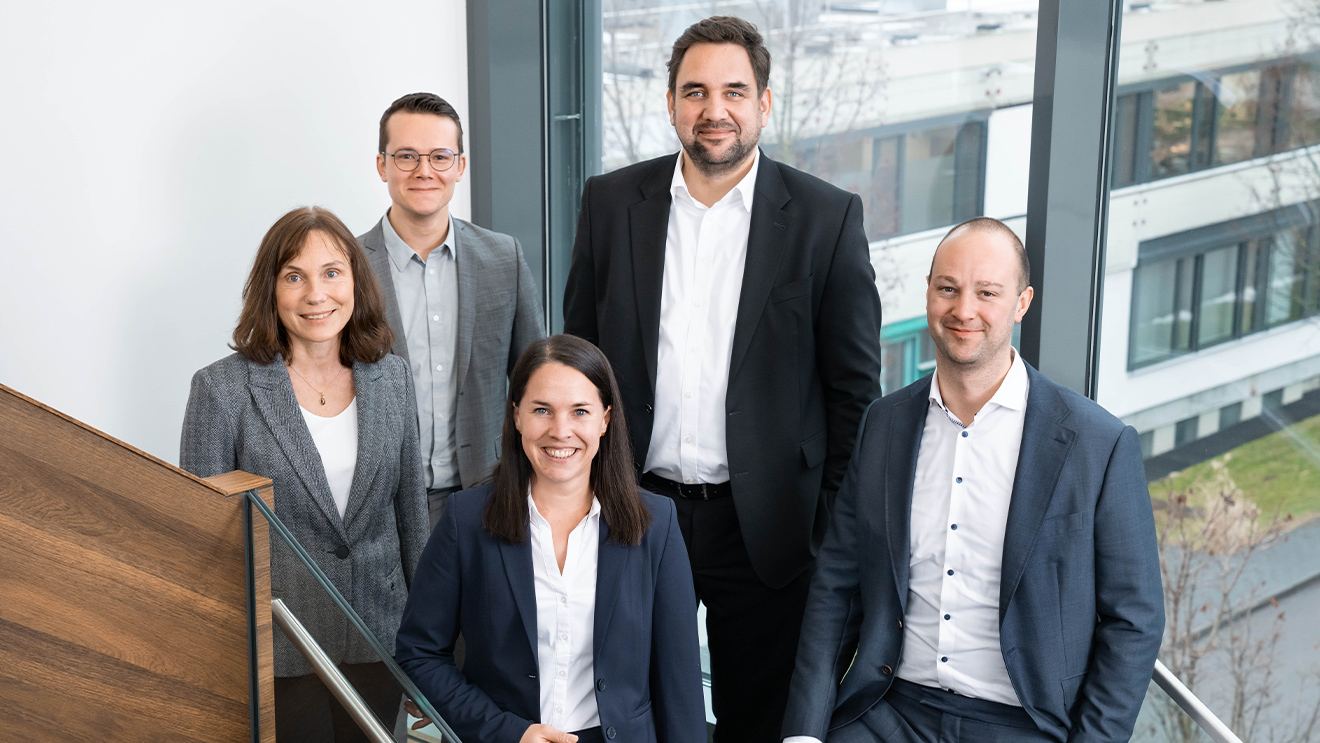- Group revenue falls by 10.2% between January and March to EUR 396.2 million due to economic slowdown in Europe and effects of coronavirus in Asia
- Global automobile production down by 23% in first quarter
- Measures aimed at raising efficiency levels take effect: EBIT up from EUR 6.4 million to EUR 16.0 million
- Net debt scaled back by almost EUR 200 million within twelve months
- Guidance for 2020 amid persistently poor visibility
Dettingen/Erms (Germany), May 7, 2020 +++ ElringKlinger AG felt the effects of economic cooling and the initial fallout from the coronavirus pandemic in its revenues over the course of the first quarter of 2020, which fell by 10.2% to EUR 396 million. The organic change in revenue, i.e., adjusted for currency effects and M&A activities, amounted to -9.8%. This was far better than the performance of the global vehicle industry as a whole, which saw production output fall by 23% during the same period. On the back of strong growth recorded during fiscal 2019, the Group managed to expand its revenue by a further 4.1% in North America in the period from January to March 2020, whereas Europe saw revenue fall by EUR 30 million or 12.4% year on year as a result of a more lethargic economy. Revenue generated from sales in Asia-Pacific, where the economic effects of the coronavirus pandemic were already palpable during the first quarter, contracted by 21.7%.
Operating profit with strong start to year
Consolidated earnings before interest, taxes, depreciation, and amortization (EBITDA) amounted to EUR 45.8 million in the first quarter of 2020 (Q1 2019: EUR 34.8 million), which was up markedly on the prior-year figure. Earnings before interest and taxes (EBIT) also improved, expanding by EUR 9.6 million to EUR 16.0 million. Successful optimization measures at the North American site, which had been adversely affected by capacity bottlenecks in the previous year, had a strong bearing on earnings performance. In addition, the Group-wide program implemented by the Management Board for the purpose of raising efficiency levels had a positive impact on the cost of sales as well as selling and general and administrative expenses. This more than compensated for the negative effects on earnings that were attributable to restrictions to production in Asia during the first quarter as a result of the coronavirus pandemic. The Group's Aftermarket business benefited from an increase in volumes requested by customers as part of their production scheduling, which was due to the demand-side optimization of inventories in response to the imminent crisis. Thus, in particular, earnings relating to the Aftermarket segment rose by EUR 5.5 million in total year on year.
Net finance costs, which increased by EUR 8.8 million to EUR -9.8 million, were impacted primarily by the direction taken by the Mexican peso during the first quarter of 2020. By contrast, income tax expenses fell by EUR 2.0 million to EUR 4.5 million. Having deducted this item, net income for the period from January to March 2020 stood at EUR 1.6 million (Q1 2019: EUR -1.1 million). This corresponds to earnings per share of EUR 0.03, compared with EUR -0.02 in the previous year.
Continued focus on cash flow optimization
ElringKlinger maintained its disciplined approach to capital expenditure between January and March 2020, as a result of which the ratio of investments in property, plant, and equipment and investment property totaled 3.1% of Group revenue - well below the prior-year figure (6.5%). With the help of targeted optimization measures, net working capital was also scaled back substantially year on year by EUR 154.3 million. As a result, operating free cash flow improved from EUR -19.3 million in the first quarter of 2019 to EUR -2.2 million in the quarter under review. The direction taken by cash flow in recent quarters had a positive impact on the Group's financial situation. Net debt, for instance, was reined back by almost EUR 200 million in just twelve months, taking the figure to EUR 603.1 million as of March 31, 2020.
Order intake and order backlog down markedly
The interruptions to production, first in Asia and later in Europe as well as North and South America and South Africa, were reflected in the order situation in the first quarter, as was the slowdown in the economy as a whole. Order intake fell by 28.8% compared to the same quarter a year ago, while order backlog dipped by 8.2%.
Guidance for 2020
Having adjusted output at its plants in line with demand at the end of March, the ElringKlinger Group began to ramp up production again step by step in Germany and at its other European sites towards the end of April. North America and Brazil will follow with a time lag. With the exception of India, the Asian plants continued to stabilize and put in a positive performance.
"The true scale of the economic impact caused by the coronavirus pandemic is impossible to predict in concrete terms. It will be seen primarily in the second and probably also in the third quarter of 2020. What is crucial is how quickly economic activity in the key industrial nations will resume and how sustainable demand will be in the coming quarters," says Dr. Stefan Wolf, CEO of ElringKlinger AG. "We responded swiftly to the downturn in demand by embracing greater cost discipline, and yet we still have to assume that the anticipated shortfalls in revenue will also have an impact on earnings."
Operating against this backdrop and emphasizing the many uncertainties that exist, the Group anticipates a change in organic revenue that will be slightly more favorable compared to that relating to global automobile production (currently expected to be -22%). Despite the measures implemented to streamline costs, it can be assumed from the current perspective that it will not be possible to fully offset the expected revenue shortfalls. Therefore, the Group anticipates that its EBIT margin will be visibly lower compared to the previous year. As a result, the net debt/EBITDA ratio is likely to be above the prior-year figure at the end of 2020. ElringKlinger remains committed to its disciplined approach to capital expenditure and will continue to optimize net working capital, on the basis of which the Group expects to achieve positive operating free cash flow in 2020 as a whole.
Key financials for Q1 2020
| EUR million | Q1 2020 | Q1 2019 | ∆ abs. | ∆ rel. |
| Order intake | 354.9 | 498.3 | -143.4 | -28.8% |
| Order backlog | 989.0 | 1,077.3 | -88.3 | -8.2% |
| Revenue | 396.2 | 441.1 | -44.9 | -10.2% |
| of which FX effects | | | -0.5 | -0.1% |
| of which M&A | | | -1.1 | -0.3% |
| of which organic | | | -43.3 | -9.8% |
| EBIT | 16.0 | 6.4 | +9.6 | +>100% |
| Net finance cost | -9.8 | -1.0 | -8.8 | -<100% |
| EBT | 6.2 | 5.4 | +0.8 | +14.8% |
| Taxes on income | -4.5 | -6.5 | +2.0 | +30.8% |
| Net income (after non-controlling interests) | 2.0 | -1.5 | +3.5 | +>100% |
| Earnings per share (in EUR) | 0.03 | -0.02 | +0.05 | +>100% |
Investments (in property, plant, and equipment
and investment property) | 12.3 | 28.8 | -16.5 | -57.3% |
| Operating free cash flow | -2.2 | -19.3 | +17.1 | +88.6% |
| Net working capital | 452.8 | 607.1 | -154.3 | -25.4% |
| Equity ratio (in %) | 41.7 | 40.9 | +0.8PP | - |
| Net financial liabilities | 603.1* | 795.5 | -192.4 | -24.2% |
| Employees (as of March 31) | 10,373 | 10,485 | -112 | -1.1% |
* Less current time deposits and securities totaling EUR 10.2 million













